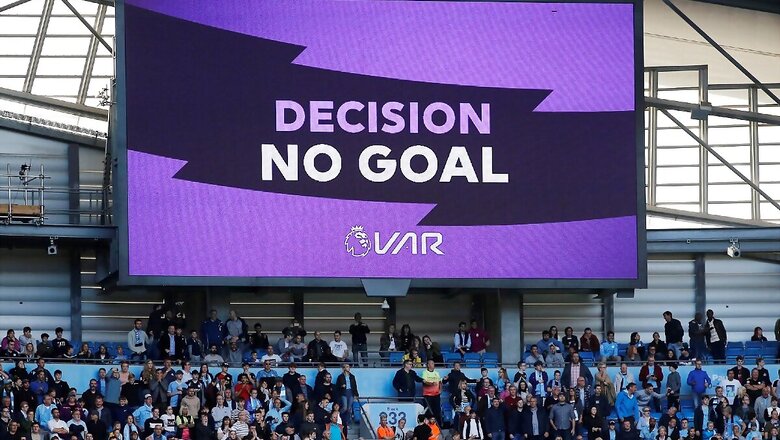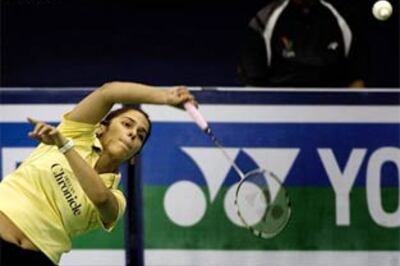
views
When the video assistant referee (VAR) was first introduced in football a few years ago, the general feeling about the new technological implementation was positive on the overall. In hindsight, the implementation of technologies in world football came in to prevent crucial refereeing errors that may have changed the course of high profile matches. Both goal-line technology and VAR were hence called upon to act, to rid the game of high profile errors and ensure that Jose Mourinho doesn’t sit out yet another press conference, grudging and complaining.
Mistakes leading up to the implementation of new technologies were aplenty. Frank Lampard’s disallowed goal for England against Germany at the Round of 16 stage in the 2010 FIFA World Cup is one of the first that comes to mind. The midfielder’s long-range effort hit the crossbar and bounced well inside the goal line. However, the ball’s trajectory and spin made it head out of goal, and the officiating referee gave a fatal judgement – no goal. England were trailing 2-1 to Germany at the moment, and the goal would have rightfully drawn them level. Instead of getting the goal and carrying momentum into the rest of the match, England eventually succumbed and Germany won the match 4-1.
The need for technologies was real
It’s not that VAR and goal-line technologies have been total nuisances. There have been plenty of instances where VAR has managed to spot a dive in the penalty box after replays revealed a striker to have faked contact from defenders. Goal-line technology was, in particular, super important, since there’s nothing worse than having a goal scored and seeing it disallowed, only to see your team lose the match in what may have been a directly consequential impact.
However, what we have instead appears to be a system that needs a lot of rethinking in terms of its implementations. Take, for instance, the Wednesday night VAR showdown in the Liverpool v Midtjylland match in the Champions League, which saw three super lengthy reviews towards the end of the match that saw a total of nine minutes being added to regulation time. The reviews were touch and go decisions – the first overturned an offside and gave a penalty, the second cancelled a penalty and adjudged offside, and the third drew much ire from Liverpool fans after Takumi Minamino’s 89th minute strike against Midtjylland was cancelled for an unintentional handball by fellow Liverpool forward, Sadio Mane.
In general football terms, having the game stopped for almost 10 minutes can totally sap the life out of the game, and it is exactly this that fans across the world (and now Jurgen Klopp too) have vocally complained against. A YouGov survey in the UK in September found that 51 percent of the surveyed football fans still think that the technology has done badly, and a significantly larger 63 percent believe that VAR has made a game of football much less enjoyable. That still said, 71 percent still believe that VAR should be retained, but it’s high time to make key changes to the technology.
Take statistics from the 2019-20 Premier League season. In October 2019, Arsenal’s Sokratis Papastathopoulos scored a last-gasp winning goal for his team against Crystal Palace at the Emirates Stadium, and the home fans erupted. Only, a few annoying minutes later, VAR disallowed the goal because of an apparent foul on Palace’s Callum Chambers in the early build-up of the goal. In November 2019, in the opening minutes of a fiery Liverpool v Manchester City contest with potential impact on the title run, Trent Alexander-Arnold saw the ball strike his arm in the penalty area, and City went up in arms appealing for a penalty. The referee continued play and Fabinho scored a scorcher in the other end.
However, City’s penalty appeal could have clearly been given, since VAR’s handball definition rule accounts for the hand being in a clear goal-scoring way, rather than the arm being in a natural position or otherwise. For Arsenal, too, the decision was harsh since on the contextual end of things, the half-foul on Chambers may not have had a direct impact in the build-up and eventual goal. Such VAR mess-ups have persisted in other leagues as well – in April 2018, in a Mainz v Freiburg match, players had to be called back from their half-time break because the VAR adjudged a late penalty that had to be taken before the second half.
Goal-line definitions
Liverpool appears to have had their share of technology misfortune in key matches. In yet another potential title impact match in January 2019, Sadio Mane of Liverpool hit the ball on the woodwork, following which Manchester City defender John Stones attempted a clearance. The ball hit their goalkeeper Emerson and went goalward, who somehow managed to grab it on the goal-line. Subsequent replays showed that to the naked eye, the ball had almost certainly crossed the line, and should have hence been allowed as a goal. Liverpool could have drawn level, in a match that City eventually ran away with at 2-1.
The reason for the Premier League’s goal-line technology disallowing it, as the match report later read, was that 11 millimetres of the ball was still within the vertical line of the goal-line. Take into account the technology’s said 4mm error margin, and Liverpool was essentially 7mm away from a deserved equaliser.
It is all of these incidents taken together that proves that technology in every field is not necessarily a saviour. In football, the technological applications in the sport are still haphazard. VAR offside decisions often judge a forward offside for a stray finger or the tip of their boot being a few centimetres ahead of the last defender – a move that would have always been allowed as on-side as the player would have been deemed level otherwise. Instead, the world of football is stuck with numerous grudges of VAR and goal-line technologies sapping all the fun out of the last-minute, nerve-wrecking thrill that is football.
As with every technology, VAR and goal-line technologies too should get better regulations and implementation rules eventually. Until then, technology in a sport of heart is as big a mismatch as pineapple on a pizza. You may still agree with it, but the principles behind it still need work.
Read all the Latest News, Breaking News and Coronavirus News here


















Comments
0 comment